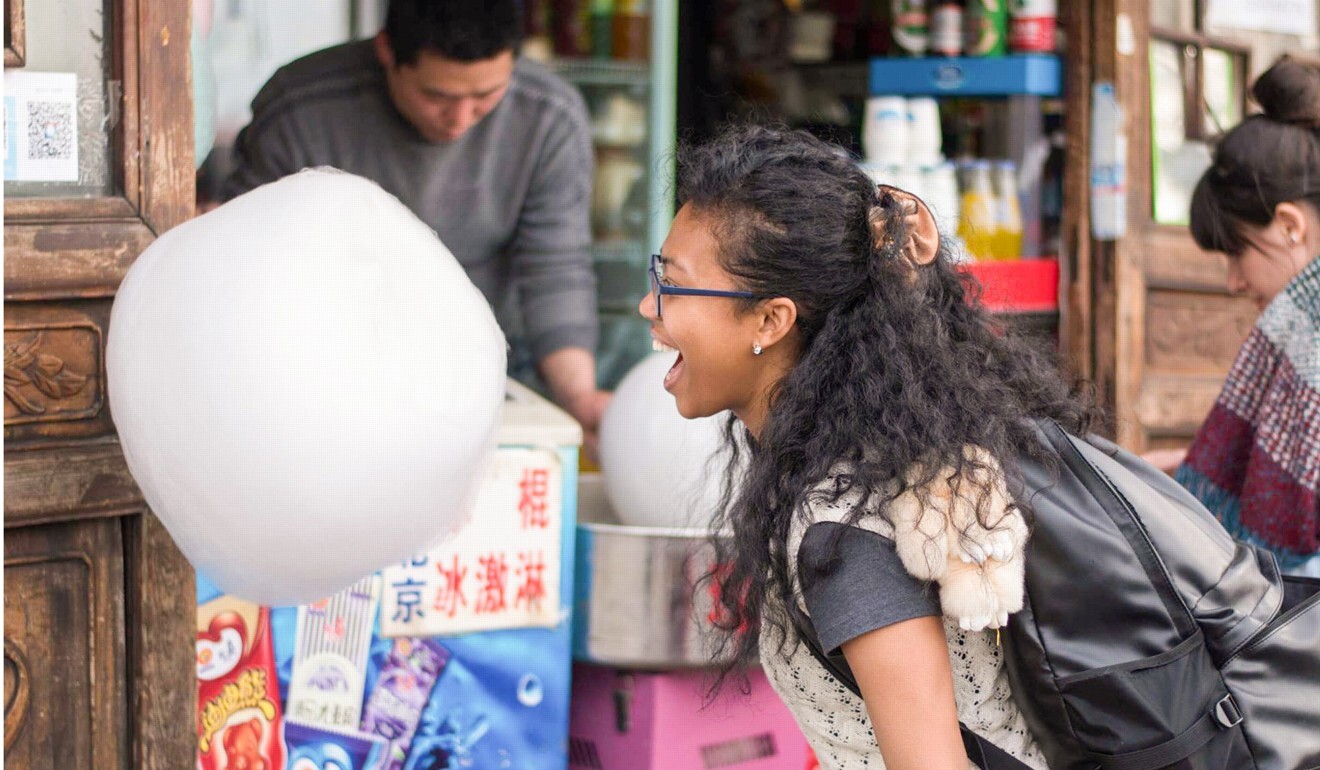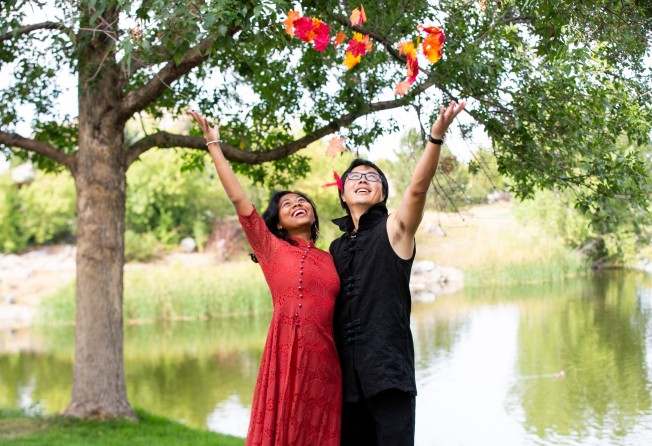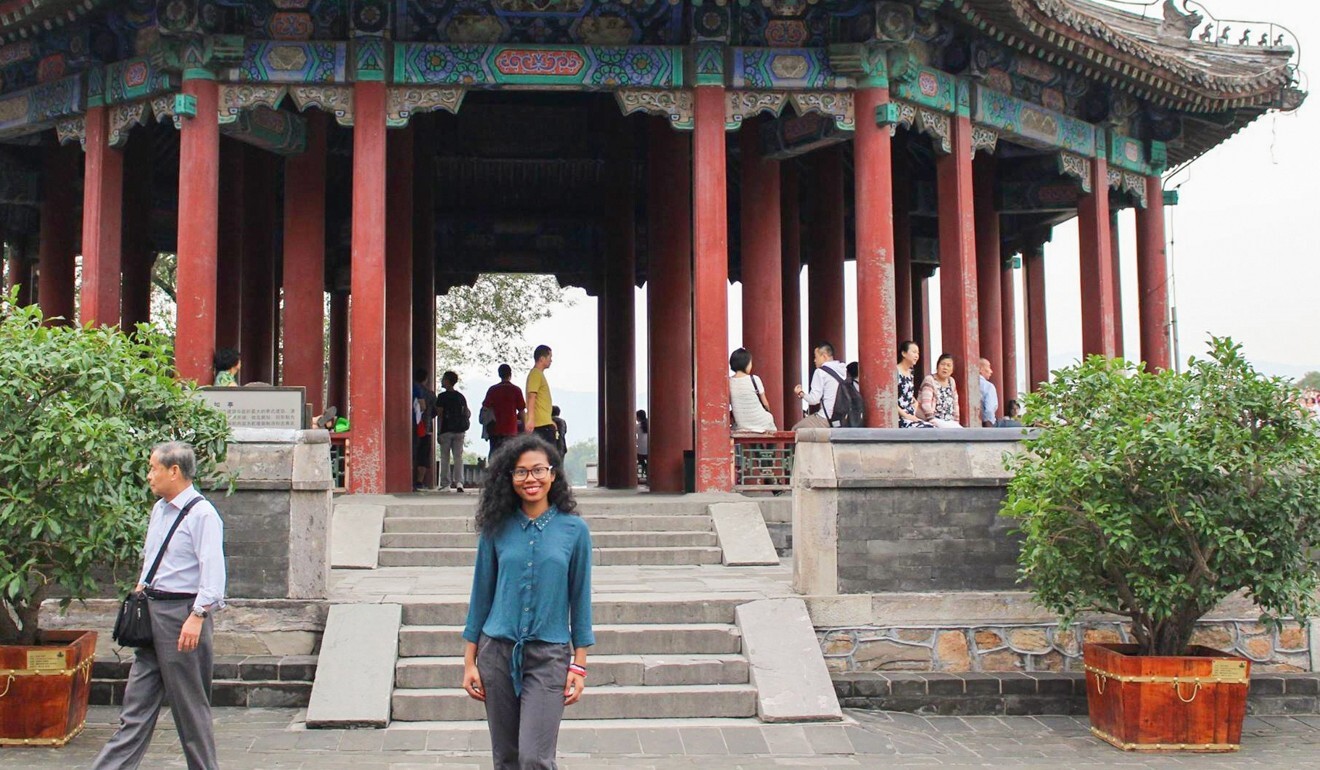
Searching for a US, China home amid a racial divide
- With an African-American father and Chinese mother, Jesse Bowens-Xu says she has experienced racism in both countries
- ‘Conversations don’t change anybody’s mind in China, they reject Western culture, but absorb Western racism,” she says

After two years of living in Beijing, Jesse Bowens-Xu was tired, annoyed and ready to go home.
The daughter of an African-American father and Chinese mother, she had gone to China to study and connect with her heritage. Her skin colour, however, was a source of day-to-day frustration and prejudice.
When applying for part-time teaching jobs to support her studies, the message she got was: “unmarketable to Chinese parents”, she said.
This despite being a graduate of University of California, Berkeley and completing a master’s degree at the prestigious Peking University in Beijing.
Locals running up to snap photos made her feel “like an animal in the zoo”, she said. About two years after leaving Beijing for the US, she is now confronted with the killing of African-American George Floyd on May 25 by a white police officer, showing the country where she grew up is no refuge.
The protests that exploded across the US and other countries in reaction to Floyd’s killing, which was captured on video and shown across social media, quickly became a part of the ongoing conflict between Washington and Beijing.

The US voiced support for the anti-government protests in Hong Kong last year and US State Department spokeswoman Morgan Ortagus took to Twitter to condemn the Chinese Communist Party for imposing a national security law on Hong Kong.
Her Chinese counterpart, Hua Chunying, responded by tweeting “‘I can’t breathe’”, the words that Floyd said as police officer Derek Chauvin suffocated him with a knee on his neck.
Bowens-Xu said she watched with dismay – as someone who had faced racism in both China and the US – how the death of Floyd was politicised. On May 31, she posted a 24-minute video on Facebook about the emotional roller-coaster she had experienced in response to Floyd’s death.
With her graduation robes from Berkeley and Peking University visible in the background, she spoke about how racism was part of daily life in the US.
Chinese social media has also seen an increase in racist commentary linked to the protests.
“If our country had as many black people as the US, then we would be in the same situation,” said a comment under a video of Floyd’s funeral circulated by Global Times on Weibo, China’s Twitter-like platform.
Another comment accused African-Americans of hypocrisy, saying that “blacks are so angry about racism, hope they don’t forget this when dealing with those of Asian descent”, a reference to the spate of physical assaults against Asian-Americans since the outbreak of Covid-19.
“The protests seem to have provided these people ‘evidence’ that black people in the US are essentially outsiders of a civilised society,” said Cheng Yinghong, a professor of history at Delaware State University.
China also faced a series of official protests from African nations in April amid reports that African residents in Guangzhou were discriminated against during the city’s efforts to contain Covid-19. Local authorities and Chinese state media rejected the accusations even as responses on social media included calls for the deportation of Africans.
“Discussions on these issues show that many people believe these Africans have unfairly shared the national wealth and opportunities that should have been given to Chinese people,” Cheng said.
Bowens-Xu said she had tried to make other Chinese aware of racism in the country. While at university in Beijing, she suggested starting a club for black students, but was told by an administrator that all foreign students, regardless of their skin colour, faced the same difficulties adapting to life in China.
Professional and academic success is a double-edged sword for multiracial women like Bowens-Xu.
Former world No 1 tennis player Naomi Osaka, whose father is Haitian and mother Japanese, received a flood of abuse after tweeting in support of the US protests, even encouraging people to attend a Black Lives Matter march in the Japanese city of Osaka, The Washington Post reported.

Bowens-Xu, whose husband Xu Haifeng is Chinese, said she once hoped her fluency in Mandarin and academic credentials would allow her to change people’s perceptions in China, but she was less confident now.
“Conversations don’t change anybody’s mind in China, they reject Western culture, but absorb Western racism,” she said.
As the rhetorical battle between the US and Chinese governments intensifies, Bowens-Xu believes that the George Floyd protests reveal deep flaws in both countries, which share worrying similarities in their treatment of Africans and African-Americans.
“Why does the US response look like the Chinese way of handling protests? Because they don’t view black people as people.”